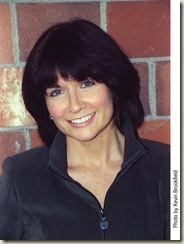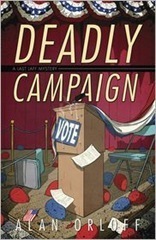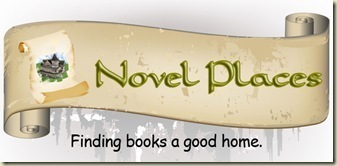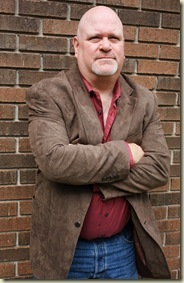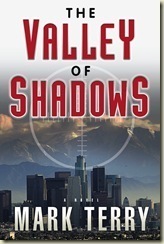Alan Orloff's Blog, page 16
July 23, 2011
Bad Links! Bad, Bad Links!
Bad News: To my chagrin, yesterday's terrific guest post by Cricket McRae got infected by some bad links. I'd like to blame the big, bad Internet, but the fault lies with me. Sorry!
Good News: They've been corrected. So if you visited the blog yesterday, and ended up in cyberspace limbo, I urge you to try again. Visit Cricket McRae's website; her blog, Hearth Cricket; check out her latest release, WINED AND DIED; and visit Bizango Websites for Writers.
July 22, 2011
Synopsis Writing Tips
I'm happy to welcome my writing pal Cricket McRae to the blog with some terrific tips for completing that most terrifying of creatures—the synopsis. In addition to being a successful novelist and fellow arugula lover, Cricket has a very interesting blog, Hearth Cricket, where she provides lots of crafty home and garden lessons, stories, and tasty tidbits.
Take it away, Cricket!
Thanks for inviting me to guest on A Million Blogging Monkeys, Alan!
As a result of my fifth contemporary cozy Home Crafting Mystery, Wined and Died, hitting the shelves, I'm on this merry little blog tour and poking my head up here and there letting people know about the book release. Kind of like a literary whack-a-mole. At the same time, I just finished another manuscript for a second series, and most recently I wrote a detailed synopsis for the next book in that series. Now I'm back at work on Home Crafting Mystery #6.
The very word synopsis used to send terror arrowing through my solar plexus. Know why? Because they're hard. At least they are for me. After all, I've never managed to start a short story that didn't turn into a novel. Or at least an idea for a full-blown novel. Keeping it short is a challenge.
But over time I've completed several novel synopses, and have picked up a few basic tips:
Really basic: The format is double-spaced, with one-inch margins, and twelve-point Times Roman font. Pretty much just like a manuscript, but for some reason there seems to be a notion that it needs to be different. It doesn't. Make sure your contact information is in the header. And some people say that the first time you introduce a character's name it should be in all caps. No matter what tense your novel is in, the synopsis needs to be present tense.
Know how long your synopsis needs to be. If you don't know, then write more than one. When I was sending them out to agents I had a one-page, a three-page, and a five-page synopsis, because different agents want different things. On the other hand, book proposals for editors typically have more detailed synopses, sometimes fifteen pages or more.
Map out your major plot points. Then identify crises, turning points, the motivation(s) of your main character(s), and the character arc of the protagonist over the course of the novel. Use this vital information as the skeleton for the rest of the synopsis.
Use the same voice and tone of your novel. It helps to convey a feel for the story if the synopsis reflects the way you've written it (or plan to write it). If your character is casual, keep the tone casual. If you tend to use brief, declarative sentences, do that in your synopsis. If you're funny, let some of that humor come through.
Keep the important stuff. If there's a character who is key late in the book, bring them up as early in the synopsis as you would, relatively, in the novel. Deciding what is important and what isn't can be surprisingly difficult. So ask yourself whether a particular piece of information adds to or detracts from the clarity you are trying to convey in your brief rundown of your story.
Lose the unimportant stuff. That clever subplot? A brief mention is enough, and then a quick line to say how it turned out at the end. Sometimes you have to drop whole subplots or relationship details, especially in one-page or three-page synopses.
Leave out dialog and description. Mostly. A single line of dialog can convey a lot, and add to that voice/tone thing I mentioned earlier.
The synopsis doesn't have to precisely reflect the timeline in the book. If you write with a lot of flashbacks, you may want to include some of those time leaps in the synopsis, but it might be easier to tell the story in shorthand if you present it chronologically.
Have other people read it. Preferably folks who haven't read your novel. You know too much about your own book to have perspective. Does it make sense to them? Pay close attention to what questions they ask or where they want clarification.
I'd love to hear about any tricks you use when writing a synopsis!
---------------------------------------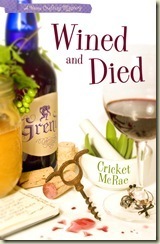
In honor of the recent release of Wined and Died, you can enter to win a free Author Website ($900 value!) plus two years of free hosting from the creative folks at Bizango Websites for Writers until July 29, 2011. For more details and information on how to enter, please visit Cricket's blog at www.hearthcricket.com.
A former resident of the Pacific Northwest where her novels are set, Cricket McRae has always dabbled in the kind of practical home crafts that were once necessary to everyday life. The magical chemistry of making soap, the satisfaction of canning garden produce, and the sensuous side of fiber arts like spinning and knitting are just of few of the reasons these activities have fascinated her since childhood. As a girl she was as much a fan of Nancy Drew as of Laura Ingalls Wilder, so it's no surprise that her contemporary cozy series features a soap maker with a nose for investigation. For more information about Cricket or the Home Crafting Mystery Series, check out www.cricketmcrae.com.
July 20, 2011
Many Hats
Elizabeth Spann Craig posted a question on the blog last week:
You've got a very interesting background...have you used any of your past work experience in your books? Are you planning to?
For those of you who don't know, I have had, uh, quite a few jobs throughout my career. The following is from my Amazon Author Page bio:
Before Alan stepped off the corporate merry-go-round, he had an eclectic (some might say disjointed) career. As an engineer, he worked on nuclear submarines, supervised assembly workers in factories, facilitated technology transfer from the Star Wars program, and learned to stack washing machines three high in a warehouse with a forklift. He even started his own recycling and waste reduction newsletter business.
In addition, I did piping stress analyses for nuclear power plants, I supervised a group of product planning managers for a TV/radio ratings company, and I was the marketing manager for a hardware/software systems developer. (And I worked at the National Bureau of Standards, and I bought corrugated containers for a major appliance company, and I consulted to a national media company, and I…)
You get the picture.
So, have I ever used any of my past work experiences in my books? I'd have to say no. At least not consciously. I mean, who wants to read about a boring cubicle dweller, who spends all day crunching numbers and writing reports?
Of course, on a subconscious level, I'm sure I've used a ton of stuff from my experiences. The way a co-worker acts. The way a factory looks. The psychological effects of a particularly stressful negotiation. Those descriptive details, amassed from all my experiences, have definitely found their way into my books.
And who better to murder than all those evil ex-bosses?
As for the future, who knows? If there's a market for a story about a rogue nuclear submarine that employs Star Wars technology as it's used in an evil plot to manipulate the TV ratings, then I'm your guy.
(Here's a question for you, Elizabeth: How much of your BBQ series is taken from your personal experience? If the answer is "a lot" then I'm inviting myself down for dinner sometime!)
July 18, 2011
Genres
Alex J. Cavanaugh left a question on the blog:
What other genres do you like besides mystery?
When I was a teenager, I read a ton. Oh, I'm not talking about all those stuffy "classics" we were supposed to read for English class (While I actually read a few of those, I have to thank Cliffs Notes for help with the rest). No, I read almost exclusively science fiction back in those days. Then I moved on to horror. I read every Stephen King and Dean Koontz book, including the books written under their pseudonyms (many of which required some serious research to determine).
When I was in my twenties, and working in Boston, I had a boss who liked to read. He recommended a series about a wise-cracking private eye, set right there in Boston. From that point on, I was a big fan of Robert B. Parker's Spenser series, as well as crime fiction in general.
In addition, I enjoy humorous, coming-of-age stories, such as those by John R. Powers, and more contemporary books by John McNally, John Green, and Brian Katcher.
While most of my current reading consists of mystery and suspense novels, I still enjoy science fiction (in fact, CassaStar is on my Kindle—and I'm looking forward to reading it!), horror, and YA.
Of course, I'll read any book that falls in the "good book" genre.
As far as writing goes, my published books (so far) fall into the mystery/suspense genre. But I have some exciting news to pass along in the next month or so—about a novel in another genre that someone close to me (very close!) will be epublishing. Stay tuned!
July 14, 2011
Come On, Monkey!
Dear Blogging Monkey,
I'm a big fan of the blog, but lately, say in the last month or so, you've been blogging more infrequently.
What gives?
Signed,
A Fan
Dear Fan,
You make a good observation--I have been blogging less frequently (although there have been some excellent guest bloggers recently). This blogging monkey has been a very busy monkey. But I'd like to get back on track, so I'll throw it open to you, my fabulous blog readers. Are there any burning questions you'd like to ask me? Leave your questions in the comments, and I'll blog with the answers.
Soon. I promise!
Signed,
Blogging Monkey
July 7, 2011
Three For Three
Another book will be throwing its hat into the 2012 ring: DEADLY CAMPAIGN, set for a January release.
This is my third book, and it was still a thrill when I saw my cover for the first time. And what a cover it is! Eye-catching, colorful, enticing (I hope!). For my money, Midnight Ink does the best covers in the business, and I'm very grateful to be part of the team.
Believe it or not, until about three weeks ago, I hadn't connected the fact that this book—with a congressional campaign as a backdrop—was coming out in an election year (I know, duh!). Maybe it's because I live in the D.C. suburbs and politics is in the news every single day, election year or not.
My two previous books were both Spring releases, so this will be my first Winter release. Hopefully, the book will appeal to all those who receive bookstore gift cards doing their shopping in early January.
Okay, so what's the book about? Here's the description from Midnight Ink's website:
A new Last Laff Mystery from Agatha Award-nominated author Alan Orloff: Comedy club owner and occasional performer Channing Hayes thought the comedy business was tough, but it's a stroll in the park compared to politics. When he and his business partner Artie attend a congressional campaign event for their friend Thomas Lee's nephew, masked thugs storm in and break up Lee's restaurant with baseball bats. The candidate's people insist that the police not be involved, so Lee asks Channing to investigate. As Channing searches for answers, he finds himself immersed in a corrupt world of payoffs, gangs, illicit affairs, blackmail—and murder . . .
It's available for pre-order here, here, here, and here. Register your vote today!
My name is Alan Orloff, and I have approved this message.
(This entry has been simulposted on InkSpot.)
June 27, 2011
Novel Places
There's a new indie bookstore in town (if you happen to live in Clarksburg, MD, that is)!
Novel Places has just opened up, and they are having a Grand Opening Celebration this Saturday, July 2.
I'll be there! So will fellow mystery author Donna Andrews and local children's author Barbara Jean Van Meter.
And there will be food and fun (and books!).
Come visit this restored historic building and help Patrick Darby celebrate the grand opening of his new store (and his birthday, too)!
The deets:
Grand Opening - Saturday, July 2 from 10am - 6pm
11am - Presentation by State Senator Rob Garagiola
2pm - Mystery Author Alan Orloff
3pm - Mystery Author Donna Andrews
4pm – Children's Author Barbara Jean Van Meter
Novel Places, 23341 Frederick Road, Clarksburg, MD 20871
June 21, 2011
8 Keys To Becoming A Successful Writer
If you look up "professional writer" in the dictionary (you know, one of those fat, printed books with lots of unusual words), you may see Mark Terry's picture. Freelancer, novelist, non-fiction author, short-story writer, blogger—he's got all the bases covered. On his blog, This Writing Life, Mark calls them like he sees them, and he sees a lot. He's blog touring to support his latest release, THE VALLEY OF SHADOWS (see below for details). Please welcome Mark Terry to home plate today! (okay, so I was in a baseball mood)
8 Keys To Becoming A Successful Writer
by Mark Terry
You can tell I've been freelancing for a living, with the "8 Keys To…" Could be anything: Marketing Your Medical Practice, Choosing New Carpet, Picking Out A New Toilet.
Anyway, I've written 13 books, over 600 magazine articles, over a dozen book-length market research reports and hundreds of web page content, directories, white papers, etc. Here are some things that I think can help make you become a successful writer (by whatever definition of "success" you choose).
1. Read a lot.
You would think this was a given, but it isn't necessarily. I have, for years, read rather broadly in the mystery/thriller/suspense area - cozies and PI novels and police procedurals and flat-out thrillers and espionage, etc. A few years ago I began to feel like my reading was getting narrower, so I consciously started expanding outside my chosen genres. I read nonfiction books, some sci-fi, some fantasy, some YA novels, some historical novels. I'm just trying to feed my brain a bit more.
2. Write a lot.
If you're a slow writer, that's okay. Just make sure you're a regular writer. Writing is a muscle and it can get flabby and atrophied if you don't use it a lot.
3. Collect a lot of rejections.
If you're not making a living as a writer and you're not getting very many rejection slips, you're probably not working hard enough. I'm a full-time freelancer and I'm constantly marketing and constantly being rejected. That's just the business. But if you've written a novel and you tried two publishers and they turned you down and you gave up, you gave up waaaaayyyyy too early. If you tried to get a dozen or even 50 agents to take you on and you gave up, you gave up waaaaayyyy too early. The market's changed with e-books, but still…
My advice is this: don't quit until you've accomplished what you set out to do. Plan on getting an agent? Send queries until you've got one.
4. If you've published a novel, keep marketing.
This is hard. But I've often thought of my successes in almost all areas of writing as coming about from a kind of "constant push." I've thought of it as like me having my shoulder to a rock that I'm trying to move. If I constantly apply pressure, eventually it'll move some. And once it starts to move, I get some momentum going. Sometimes I try a big shove and sometimes I ease off (but not entirely; I always try to be at least leaning against that rock), but there's always some pressure going on.
5. Reach out.
I'm trying harder to help other writers. I wish I had had more mentors when I was struggling. There are limits to what I can do, but I am trying.
6. Stretch.
Like reading outside my immediate preferences, I think it's a good thing from time to time to try something different. I've been writing an SF novel for a year or two. I wrote a nonfiction book proposal that my agent is currently marketing. Try something different. It's good for you. It works different muscles.
7. Allow yourself to hope.
But realistically. It's okay to hope you'll sell a novel for seven figures and get a hot movie deal and end up on Good Morning, America, but you might also get struck by lightning while taking out your garbage on a sunny day. It happens, but not often. But allow yourself to hope you'll get published, that you'll get an advance, positive reviews, and be able to build a readership. Hope big.
8. Have a life.
Writing isn't everything. I've said it again and again. Don't let this passion (obsession) ruin your life. If your happiness depends on getting a book contract, on becoming a novelist, on making a living as a novelist, on hitting the bestseller lists, you're letting your life be run by things you have no control over and letting people you've never even met have too much control over your life. Have a life. Makes friends. Pay attention to your spouse and children. Travel. See movies. Go to a museum. Take your dog for a walk. Play an instrument. Sing. Laugh. Go to the gym. Take up yoga or tai chi or macramé or soap carving or building life-size replicas of historical monuments out of beer cans. Live.
What did I miss?
THE VALLEY OF SHADOWS , is the fourth in the thriller series featuring Homeland Security troubleshooter Dr. Derek Stillwater, and it's been getting some great reviews. Check it out, along with the first three in the series, THE DEVIL'S PITCHFORK , THE SERPENT'S KISS , and THE FALLEN , as well as some of Mark's other works . Also be sure to visit Mark's blog, This Writing Life .
Thanks for visiting the blog today, Mark!
June 16, 2011
Tips for Writing Away from Home
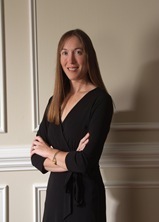 Elizabeth Craig/Riley Adams is one of the hardest working writers I know, writing multiple series at the same time, in addition to being a top-notch blogger and Twitter expert extraordinaire. I don't know how she manages to juggle her writing with being a mother, either, but it's truly inspirational. Why, she's so busy, she needs two names! If you like fun mysteries, I highly recommend hers. Please welcome one of my favorite writing pals to the blog!
Elizabeth Craig/Riley Adams is one of the hardest working writers I know, writing multiple series at the same time, in addition to being a top-notch blogger and Twitter expert extraordinaire. I don't know how she manages to juggle her writing with being a mother, either, but it's truly inspirational. Why, she's so busy, she needs two names! If you like fun mysteries, I highly recommend hers. Please welcome one of my favorite writing pals to the blog!
Tips for Writing Away from Home
by Elizabeth Craig
Do you ever write in cafes or coffeehouses? How about…swimming pools? I took my daughter and her friend to the pool the other day, intending to get some writing done while they entertained themselves. I was so organized, too—towels, goggles, snacks, membership card, sunscreen—but somehow the notebook that was in my hand didn't make it into the pool bag.
Fortunately, the YMCA was obliging, even though they now think I'm a little odd. "Do you have any registration forms?" I asked.
The teenage staffer: "Registration for what, ma'am?"
"For…anything!" I answered.
There was a pause. "Day camp? Fall preschool? Gymnastics?"
"Yes!" I said.
Luckily, I got enough blank-backed registration forms to keep me in paper for the next couple of hours. (I had to write small.)
The pool isn't the only place I write. Besides the usual cafes and coffeehouses, I've written at the park, at a bowling alley, skating rinks, Disney World…the list goes on and on.
Tips for Writing in Public Places:
Be prepared. Don't be like me! Obviously, I'd run through my entire emergency supply of index cards when I ran into my problem at the pool. 4x6 index cards are perfect for writing—you can store them in your car's glove compartment, or other small spaces. Pencils seem to be more reliable than pens (which have a tendency to be gloppy sometimes.) Have extra cards and notebooks with you, too, in case you run out of space in one notebook, or break the point on a pencil.
Voice recorders can be useful (if no one is close.) I've got a free voice recorder on my phone that holds a ton of recordings. Obviously, though, I'm going to restrain myself from muttering about murder if anyone is close by :)
Shed your self-consciousness. Although you've got to be a little careful about the voice recorder, you shouldn't worry in general about how you look when you're out writing. Yes, I've had people come up and ask me questions about what I'm doing…usually they seem to think I'm sketching, which seems weird to me. I guess because I'm usually staring blankly around me as I write. But writing away from home really opens up a lot of possibilities if you're open to the experience.
Choose a spot where no one knows you. Is there a local coffeehouse that's a hangout for your friends and neighbors? It's probably better to skip it and head for a spot a little farther from home if you're genuinely trying to get some writing done.
Soak up your surroundings. There's usually plenty of fodder for books in public places: you can find character traits, names, and other tidbits that can be worked into books.
An e-reader can be your friend. Load your files onto your e-reader for easy transport ofElizabeth's latest book, Finger Lickin' Dead , released June 7th. Elizabeth writes the Memphis Barbeque series for Penguin/Berkley (as Riley Adams), the Southern Quilting mysteries (2012) for Penguin/NAL, and the Myrtle Clover series for Midnight Ink.
Writer's Knowledge Base--the Search Engine for Writers
Twitter: @elizabethscraig
School's Just Starting
The welcome mat has been dusted off and put out for some special guests to the blog.
Tomorrow, the wonderful Elizabeth Craig joins us with some tips for writing away from home.
Next Tuesday, the terrific Mark Terry will pass along his 8 keys to becoming a successful writer.
Looks like we're going to learn some new things in the next few days! Outstanding!

